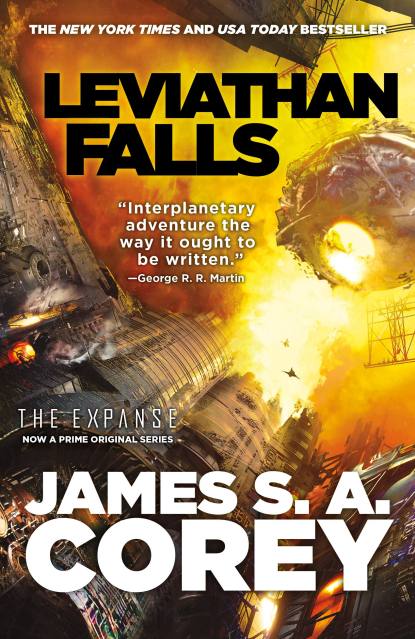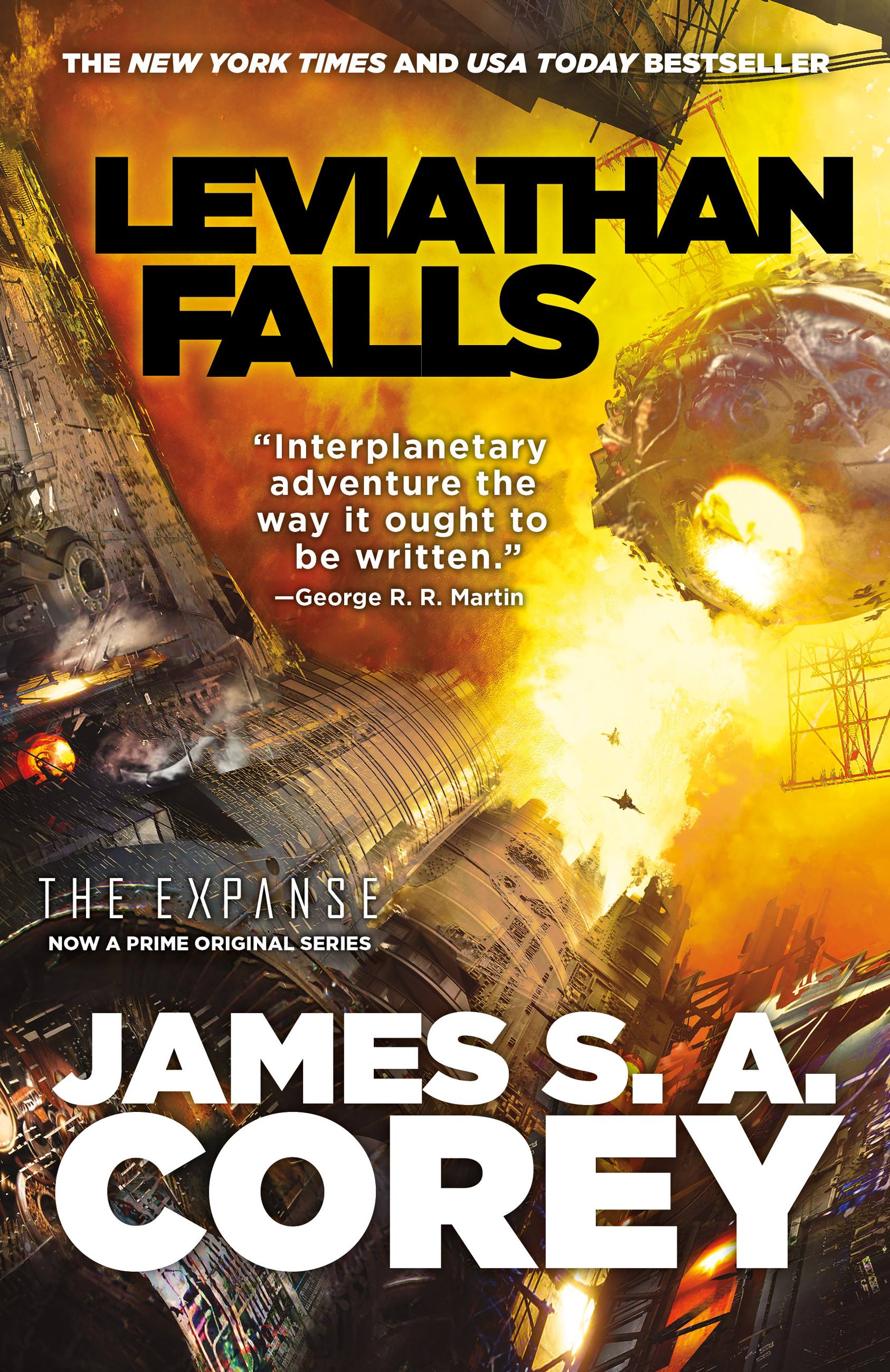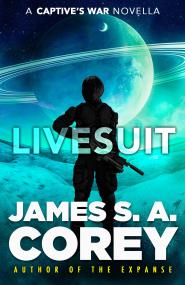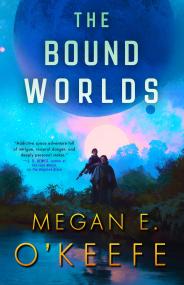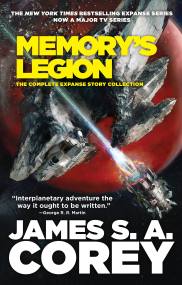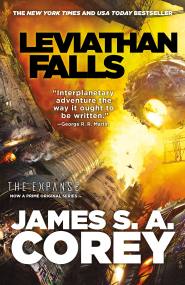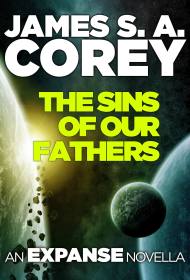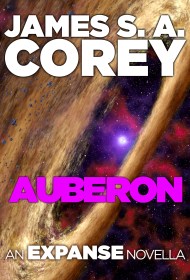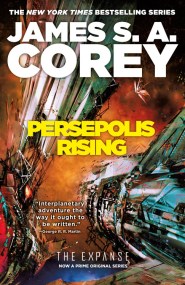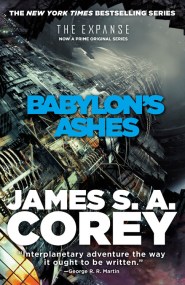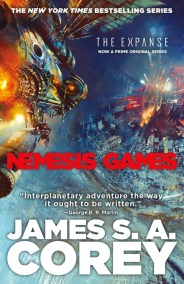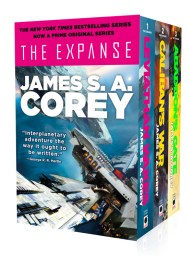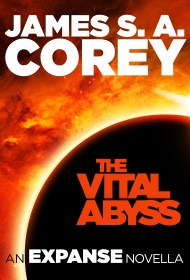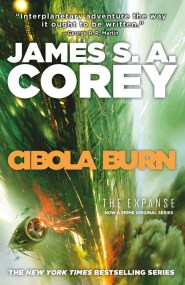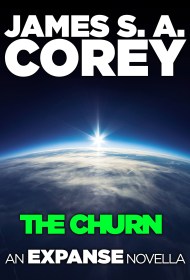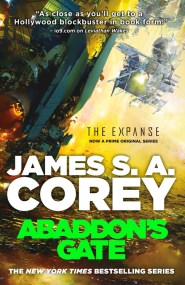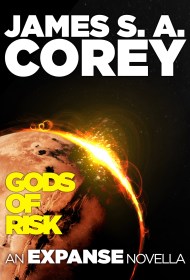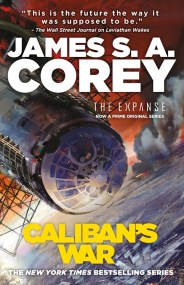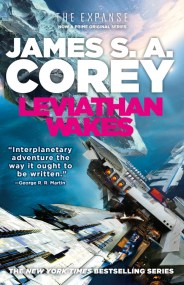Promotion
Sign up for our newsletters to receive 20% off! Shop now. Exclusions apply.
By clicking “Accept,” you agree to the use of cookies and similar technologies on your device as set forth in our Cookie Policy and our Privacy Policy. Please note that certain cookies are essential for this website to function properly and do not require user consent to be deployed.
Leviathan Falls
Contributors
Formats and Prices
Price
$11.99Price
$15.99 CADFormat
Format:
- ebook $11.99 $15.99 CAD
- Hardcover $30.00 $38.00 CAD
- Trade Paperback $18.99 $23.99 CAD
This item is a preorder. Your payment method will be charged immediately, and the product is expected to ship on or around November 30, 2021. This date is subject to change due to shipping delays beyond our control.
Also available from:
The biggest science fiction series of the decade comes to an incredible conclusion in the ninth and final novel in James S.A. Corey’s Hugo-award winning space opera that inspired the Prime Original series. With over 10 million copies sold, The Expanse has become one of the biggest science fiction phenomenons of the decade.
“An all-time genre classic.” –Publishers Weekly (starred review)
HUGO AWARD WINNER FOR BEST SERIES
The Laconian Empire has fallen, setting the thirteen hundred solar systems free from the rule of Winston Duarte. But the ancient enemy that killed the gate builders is awake, and the war against our universe has begun again.
In the dead system of Adro, Elvi Okoye leads a desperate scientific mission to understand what the gate builders were and what destroyed them, even if it means compromising herself and the half-alien children who bear the weight of her investigation. Through the wide-flung systems of humanity, Colonel Aliana Tanaka hunts for Duarte’s missing daughter. . . and the shattered emperor himself. And on the Rocinante, James Holden and his crew struggle to build a future for humanity out of the shards and ruins of all that has come before.
As nearly unimaginable forces prepare to annihilate all human life, Holden and a group of unlikely allies discover a last, desperate chance to unite all of humanity, with the promise of a vast galactic civilization free from wars, factions, lies, and secrets if they win.
But the price of victory may be worse than the cost of defeat.
"Interplanetary adventure the way it ought to be written." —George R. R. Martin
The Expanse
Leviathan Wakes
Caliban's War
Abaddon's Gate
Cibola Burn
Nemesis Games
Babylon's Ashes
Persepolis Rising
Tiamat's Wrath
Leviathan Falls
Memory's Legion
The Expanse Short Fiction
Drive
The Butcher of Anderson Station
Gods of Risk
The Churn
The Vital Abyss
Strange Dogs
Auberon
The Sins of Our Fathers
“An all-time genre classic.” –Publishers Weekly (starred review)
HUGO AWARD WINNER FOR BEST SERIES
The Laconian Empire has fallen, setting the thirteen hundred solar systems free from the rule of Winston Duarte. But the ancient enemy that killed the gate builders is awake, and the war against our universe has begun again.
In the dead system of Adro, Elvi Okoye leads a desperate scientific mission to understand what the gate builders were and what destroyed them, even if it means compromising herself and the half-alien children who bear the weight of her investigation. Through the wide-flung systems of humanity, Colonel Aliana Tanaka hunts for Duarte’s missing daughter. . . and the shattered emperor himself. And on the Rocinante, James Holden and his crew struggle to build a future for humanity out of the shards and ruins of all that has come before.
As nearly unimaginable forces prepare to annihilate all human life, Holden and a group of unlikely allies discover a last, desperate chance to unite all of humanity, with the promise of a vast galactic civilization free from wars, factions, lies, and secrets if they win.
But the price of victory may be worse than the cost of defeat.
"Interplanetary adventure the way it ought to be written." —George R. R. Martin
The Expanse
Leviathan Wakes
Caliban's War
Abaddon's Gate
Cibola Burn
Nemesis Games
Babylon's Ashes
Persepolis Rising
Tiamat's Wrath
Leviathan Falls
Memory's Legion
The Expanse Short Fiction
Drive
The Butcher of Anderson Station
Gods of Risk
The Churn
The Vital Abyss
Strange Dogs
Auberon
The Sins of Our Fathers
Series:
-
“An all-time genre classic.”Publishers Weekly (starred review)
-
"The ending is equal parts heart-wrenching and hopeful, and it’s what Abraham and Franck have been building toward for more than a decade."Polygon
-
"Corey deftly weaves multiple points of view to create a dense and colorful tapestry of political intrigue, personal relationships, and sophisticated technology that bursts with action but also delivers an introspective view of the characters as they age and reflect on their purpose and the value of their lives."Booklist (starred review) on Tiamat's Wrath
-
"The science fictional equivalent of A Song of Ice and Fire...only with fewer beheadings and way more spaceships."NPR Books on Cibola Burn
-
"Combining an exploration of real human frailties with big SF ideas and exciting thriller action, Corey cements the series as must-read space opera."Library Journal (starred review) on Cibola Burn
-
"It's been too long since we've had a really kickass space opera. Leviathan Wakes is interplanetary adventure the way it ought to be written, the kind of SF that made me fall in love with the genre way back when, seasoned with a dollop of horror and a dash of noir. Jimmy Corey writes with the energy of a brash newcomer and the polish of a seasoned pro. So where's the second book?"George R. R. Martin on Leviathan Wakes
-
"An excellent space operatic debut in the grand tradition of Peter F. Hamilton."Charles Stross on Leviathan Wakes
-
"Literary space opera at its absolute best."io9 on Abaddon's Gate
-
"Riveting interplanetary thriller."Publishers Weekly on Leviathan Wakes
- On Sale
- Nov 30, 2021
- Page Count
- 528 pages
- Publisher
- Orbit
- ISBN-13
- 9780316332934
Newsletter Signup
By clicking ‘Sign Up,’ I acknowledge that I have read and agree to Hachette Book Group’s Privacy Policy and Terms of Use
